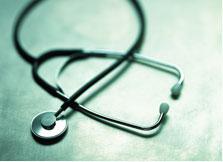Medtronic Medical Devices
NO FEES UNLESS WE ARE SUCCESSFUL


Medtronic Inc. is one of the largest manufacturers of medical devices in the world. Medtronic’s founding partners were responsible for the development and manufacture of the first wearable and implantable artificial pacemaker. The most recent recall is for defective products manufactured by Medtronic.
Some of the most well known medical devices that are used to assist patients with heart problems have recently obtained a great deal of attention because of widespread defects.
If you or a loved one has been the victim of a defective medical device, call the experienced Boston medical malpractice attorneys at Bellotti Law Group, P.C. today at 617-225-2100 for a free consultation.
The Sprint Fidelis
The FDA is recommending that patients who have the Sprint Fidelis lead implant should contact their physician immediately, especially if they have experience multiple shocks.
The Sprint Fidelis leads have been implanted in approximately 268,000 people worldwide, the majority of which are in the United States. Medtronic estimates that approximately three percent of those individuals will suffer a failure.
Such defects include:
- Implantable Pacemakers and defibrillators
- Cardiac ablation catheters
- Monitoring and diagnostic devices
- Cardiac resynchronization devices
Medtronic Pacemakers
The human body contains natural pacemakers that regulate an individual’s heartbeats. Severe heart trauma, such as the trauma associated with cardiac arrest or heart attack can put a person at risk of future heart failure due to irregular beating patterns.
- Artificial pacemakers are small battery-operated devices
Defects: A recall was issued in 2005 for the Sigma Series pulse generators because of the device’s higher than expected failure rate
Medtronic ICDs
An implantable cardioverter defibrillator (ICD) is a type of electronic medical device that is implanted in the body of people suffering from a faster than normal heart rate, or tachycardia. The ICD delivers a mild shock to the heart, redirecting the rhythm to a normal beating pattern when the heart experiences faster than normal heart beat rates.
Defects: Like Medtronic pacemakers, Medtronic ICDs have defects that have forced the company to issue a variety of safety advisories for patients. In 2004 and 2005, advisories were issued for the Marquis and Micro Jewell ICDs due to defective batteries and the inability of the device to provide a full energy shock if necessary.
Medtronic CRT
Cardiac resynchronization therapy (CRT) is a type of medical device designed for use by individuals who have suffered moderate to severe heart failure and also suffer from ventricular dyssynchrony, a condition in which the lower chambers of the heart beat at a different rate.
Defects: Medtronic products have had defective CRT issues that are similar in nature to those affecting Medtronic ICD devices. Batter short issues can severely inhibit the device’s ability to function, which puts a patient’s life at risk.
Who is at risk? Children and young adults seem to be the most at risk. These patients seem to be the most active and that may result in stress to the implant.
The FDA must approve medical equipment, but the manufacturer of the device is responsible to ensure the safety of the product. When a medical device is defective, the manufacturer is responsible to inform the FDA and public about the defect and any potential risks. If the manufacturer of the device does not properly inform the public, it may be considered an act of negligence.
If you believe that a defective medical device has harmed you, contact Boston medical malpractice lawyers at Bellotti Law Group, P.C.. We cover a wide variety of cases, such as auto accidents, defective products, construction accidents, slip and fall accidents, etc. Call 617-225-2100 for a free consultation.

